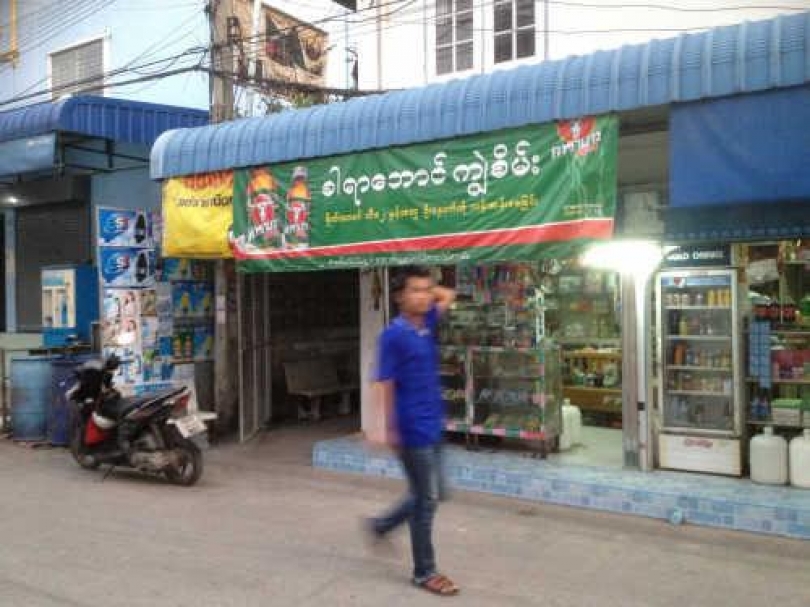Myanmar migrant workers hit hard

THE closure of small and medium-sized seafood-processing plants in Mahachai due to a supply shortage has affected not only migrant workers from Myanmar but also local business communities in the area.
The serious situation in Samut Sakhon province and other ports around Thailand was caused by a European Union ultimatum against illegal fishing. The EU imposed a “yellow card” on the Thai fishing industry last April giving the country time to fix its illegal, unreported and unregulated (IUU) fishing or face a costly ban on seafood exports into Europe.
Porn Chansri, a merchant selling groceries at Tar Ming (Niwet) Market, a fresh market in front of Mahachai Niwet Housing, said daily sales at her shop had declined significantly from between Bt7,000 and Bt8,000 three or four months ago to between Bt3,000 and Bt4,000 today.
Porn, who has been at the market for two years, said many Myanmar clients had reduced their purchases each time. She said around three-fourths of the clients at her shop were Myanmar nationals living in Mahachai Niwet and nearby areas, while another one-third were Thais.
International media reports about the use of forced labour have put pressure on Thailand’s seafood industry since late last year, forcing the Thai Frozen Foods Association to ban members from employing outsource pre-processing sheds. This caused many workers to lose jobs as small companies had to close down. More than 5,000 jobs were lost as a result of the outsourcing ban, according to the reports.
The closure of many seafood-processing plants in Mahachai has had a significant impact on Myanmar workers. Some have lost their jobs, while many of the plants still operating have cut migrant workers’ overtime in half.
Nat Mahachai, owner of a small barbershop at Mahachai Niwet, said Myanmar people in the community usually preferred to have their hair cut at his store on Wednesdays. However, the number of customers has dropped significantly, from 20-30 each Wednesday to only five or six.
“Many fishing boats and small outsourced processed-seafood plants in Mahachai have closed and laid off employees,” Nat said.
He said many workers who had lost their jobs had decided to go back to their own country. Meanwhile, some of them decided to switch to working as car-care staff, fuel-station attendants, or merchants at train stations and fresh markets in the area.
“Many Myanmar migrant workers have left Mahachai for other cities, such as Pak Nam and Phra Pradaeng in Samut Prakan, and to find jobs in other kinds of factories, such as for auto parts and packaging,” Nat said.
Cuts in overtime
Tan Tan Tei, a Myanmar woman who works as an officer at the Siriburana private medical clinic in Mahachai Niwet, said about 90 per cent of Myanmar people in the community had worked at the seafood-processing plants in Mahachai and nearby areas in Samut Sakhon.
She said many plant workers had suffered from the cuts in overtime from five to six hours a day previously to only two hours. Many small seafood plants have shut down, causing many Myanmar workers to lose their jobs.
“I myself have seen Myanmar people returning to Myanmar every day because of the closure of seafood-processing plants in the province,” Tan Tan Tei said.
She said many Thai investors had opened factories in Myanmar after the opening of the country to attract foreign investors.
“Even at my home town Moh Lamyai, there are cement and canned-fish plants being opened and owned by Thais. Myanmar has opened the country for foreign investors, including from Thailand, to set up business, and that created great potential for Myanmar workers to back home and enjoy higher opportunities to get job.”
Meanwhile, a Myanmar worker who declined to disclose his name said he came with his friends from Yangon to work and live in Mahachai in 2004. Even thought many plants in Mahachai now are being closed, he has no plan to return to Myanmar in the near future.
“Myanmar needs several more years to be settled in terms of basic infrastructure, such as in the financial sector, to promote a good business environment and encourage foreign investment,” he said.
“Compared with Thailand, it is still quite difficult to find jobs in Myanmar today,” he added.





